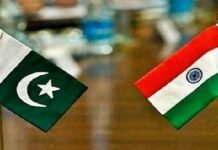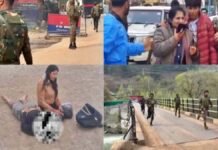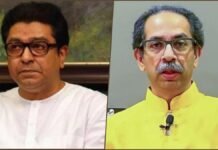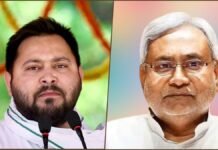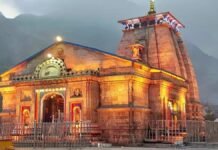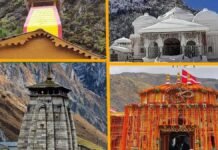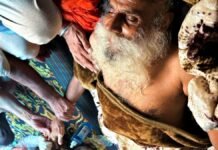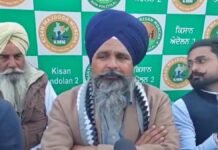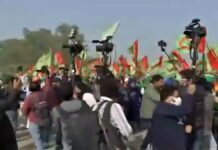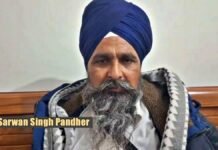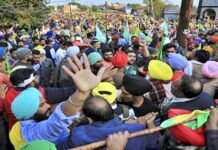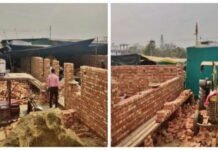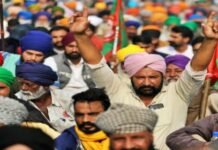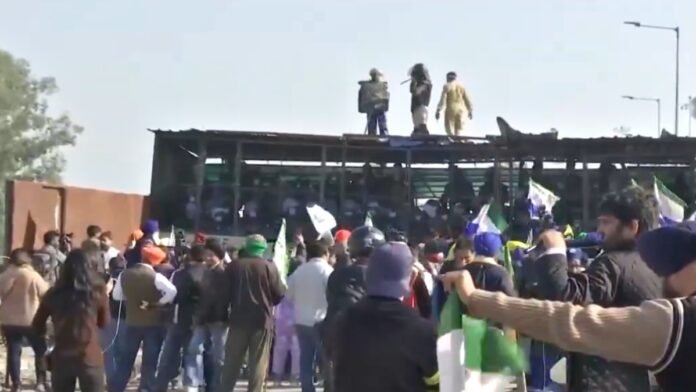
Greater Noida/Ambala: A tense standoff unfolded on Friday as hundreds of farmers embarked on the ‘Dilli Chalo’ march, defying prohibitory orders and heavy police deployment at multiple border points. Farmers, protesting against agrarian issues, clashed with security personnel at Greater Noida’s Pari Chowk and the Shambhu border, leading to detentions, traffic disruptions, and heightened security across the Delhi-NCR region.
Tear Gas and Arrests at Shambhu Border
The march turned volatile at the Shambhu border, where farmers dismantled barbed wire and barricades to push towards Delhi. In response, police fired tear gas shells to disperse the crowd and detained several protesters. Authorities invoked Section 163 of the Bharatiya Nagarik Suraksha Sanhita (BNSS) in Ambala, banning the assembly of five or more people, further intensifying the crackdown.
Speaking to the media, a police official stated, “The farmers don’t have permission to enter Haryana. The administration is enforcing Section 163 to maintain law and order.”
Traffic Snarls and Border Lockdowns
The protest triggered massive traffic jams in Greater Noida, Noida, and central Delhi as authorities enforced strict checking at border points. Multilayered barricades, concrete blockades, and water cannons were deployed at critical points such as the Singhu border and the Shambhu border on National Highway-44.
Heavy security was also observed at the Noida border, where farmers from Uttar Pradesh staged a sit-in. Delhi Police issued an alert, ensuring a high-level security presence to prevent the protest from spilling into the capital.
Internet Shutdowns and School Closures
Amid the escalating tensions, internet services in Ambala were suspended until December 9 to prevent the spread of misinformation and mobilization via social media. All schools, government and private, in the district were ordered to shut down as a precautionary measure.
Farmer Leaders Lead the Charge
The march was led by prominent farmer leaders, including Satnam Singh Pannu, Surinder Singh Chautala, Surjit Singh Phul, and Baljinder Singh. Despite the barriers and arrests, the leaders vowed to continue their struggle for their demands, which include better support prices and resolution of pending issues from previous agreements.
Meanwhile, Samyukta Kisan Morcha (SKM) leader Jagjit Singh Dallewal continued his fast-unto-death at the Khanauri border point, underlining the farmers’ determination.
Government Stance and Public Impact
The government has defended its actions, citing the need to maintain public safety and order. However, the farmers’ movement has once again brought agrarian distress to the forefront, sparking debates over the state of Indian agriculture and the government’s response.
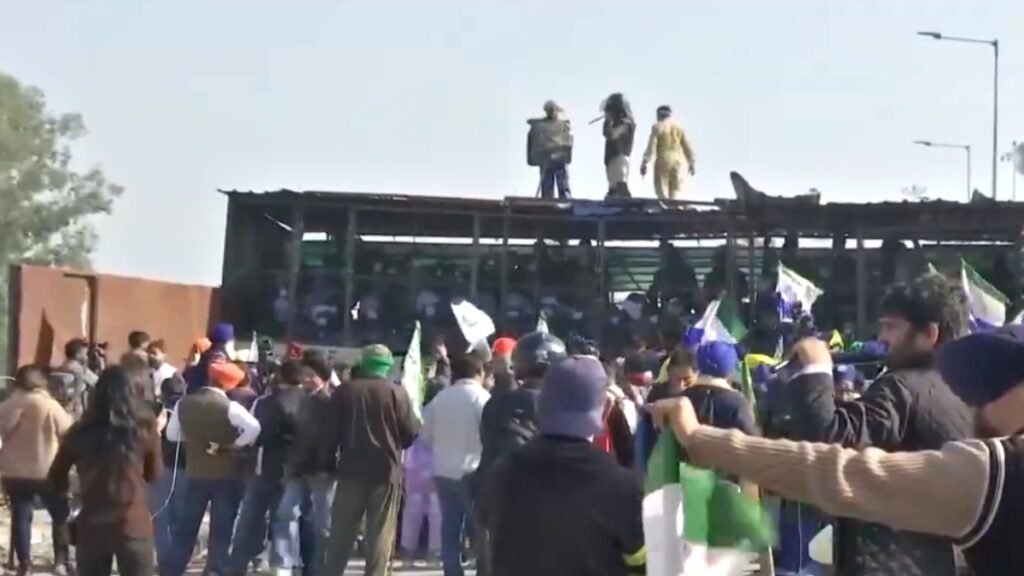
The situation remains tense, with further escalation expected as farmers show no signs of backing down. While the barricades hold for now, the question remains: will dialogue bridge the growing gap between the government and the farmers?

